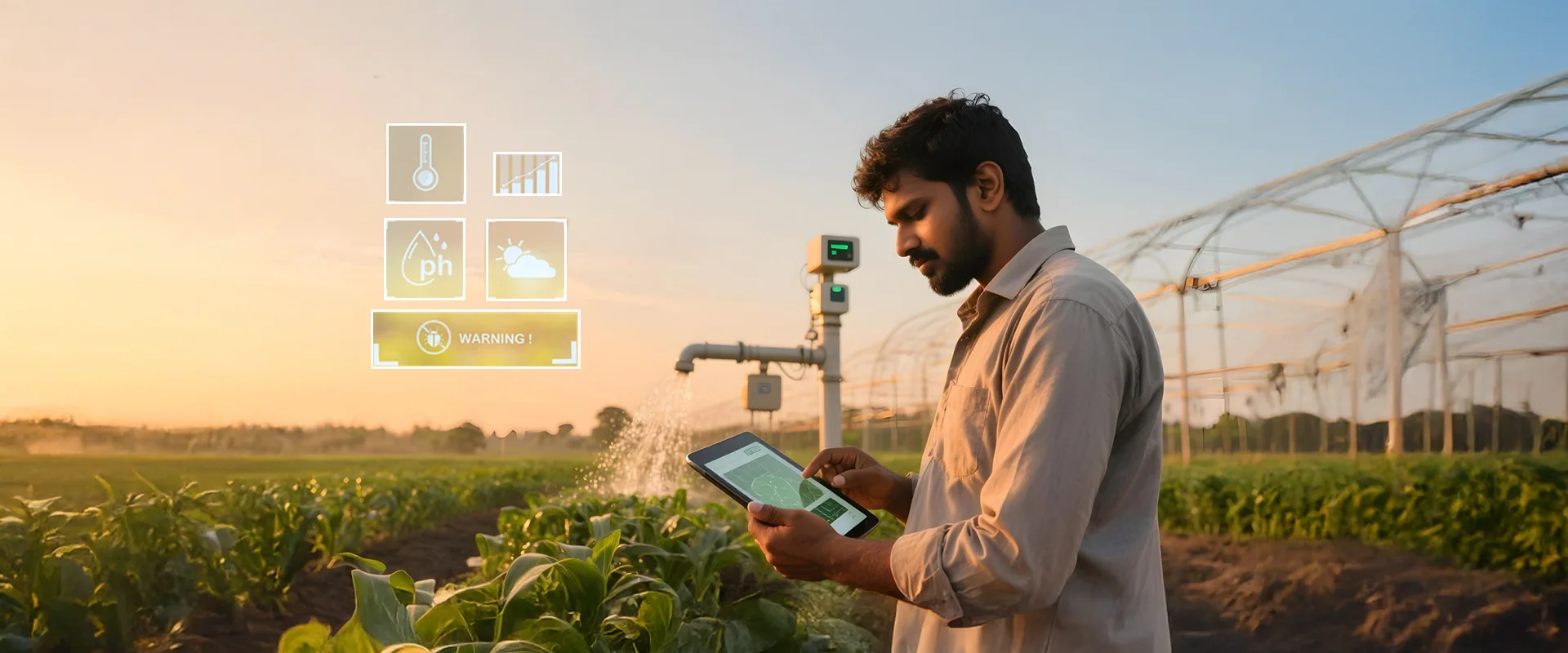Agriculture is entering a new era, one where data, climate intelligence, and on-ground farming practices are beginning to converge into a unified decision-making ecosystem. From input planning and production operations to procurement, financing, and sustainability reporting, enterprises now require visibility into what is happening across their farming and supply networks, not just season to season, but in near real-time.
This need has accelerated the adoption of AI-driven Agtech platforms that combine satellite imagery, agronomy models, weather analytics, soil insights, and supply chain data into predictive, actionable intelligence.
In this landscape, a few companies stand out for delivering real, at-scale value to agribusinesses, food and beverage manufacturers, seed and input companies, commodity traders, financial institutions supporting agriculture portfolios, and sustainability programs.
Below is a list of five AI-focused agriculture platforms that are influencing how global agriculture operates today. Each one approaches the problem from a different angle, but they all share a commitment to practical, actionable, measurable outcomes.
1. Cropin
AI-Powered Farm Intelligence for traceable, predictable, and sustainable food production, sourcing, and supply
It helps businesses transform food production at scale with the power of plot level, regional and climate intelligence. At a time when traditional food production, sourcing, and supply playbooks are failing under the pressures of climate change, supply chain disruptions, and geopolitical volatility, Cropin Cloud empowers agri-food companies to build operations that are resilient, predictable, profitable, and sustainable.
Cropin’s platform creates digital twins of crop systems, enabling organizations to understand how crops are growing, what risks are emerging, and how yields and supply volumes are likely to shift before those shifts translate into business impact.
Where AI Makes a Practical Difference
Why It Matters
In global agricultural environments where variability is the rule, not the exception, Cropin enables enterprises to move from reactive decision-making to proactive and preventive planning. This shift is especially critical in value chains where supply volatility directly impacts business stability. By mitigating risks such as supply shortages, price volatility, and yield inconsistencies, Cropin helps optimize supply chains through accurate yield predictions, ultimately improving operational efficiency and profitability.
2. Climate FieldView (Bayer)
Precision Agronomy and Field Data Analytics Platform
Market Reach: Adopted across multiple regions
Climate FieldView provides a strong foundation for enterprises that rely heavily on precision agronomy and equipment-integrated data. The platform unifies data from sensors, machinery telematics, field monitoring tools, and remote imagery, enabling teams to understand how fields are performing at a granular level.
Where AI Makes a Practical Difference
Why It Matters
For organizations with mechanized and input-intensive operations, FieldView offers high-resolution control over production variables, allowing teams to improve yield consistency and reduce operational uncertainty.
3. CropX
Soil and Irrigation Intelligence Powered by Field Sensors and Machine Learning
CropX focuses on the soil and water in cultivation, which are increasingly critical due to climate variability and resource constraints. By combining soil sensor data, satellite observations, and predictive modeling, the platform provides recommendations that help growers and enterprises optimize irrigation and nutrient application.
Where AI Makes a Practical Difference
Why It Matters
For agribusinesses operating in regions where water efficiency, sustainability commitments, or cost controls are strategic priorities, CropX enables resource-smart production without compromising yield potential.
4. AGRIVI
Farm Operations Management and Production Standardization Platform
AGRIVI enables organizations to standardize production systems, monitor field operations, and document compliance across multi-farm or multi-region grower networks. The platform provides the structure needed to ensure that production protocols are followed consistently, especially when scaled across diverse sourcing environments.
Where AI Makes a Practical Difference
Why It Matters
In markets where quality, traceability, and certification standards drive buyer confidence, AGRIVI helps organizations demonstrate and maintain consistency across their production ecosystems.
5. SourceTrace
Digital Traceability and Agricultural Visibility Platform
SourceTrace is designed to digitize and verify data across agricultural supply chains, including those involving smallholder networks and geographically distributed sourcing systems. The platform enables organizations to capture, validate, and track farm-level practices, sourcing origins, and sustainability compliance.
Where AI Makes a Practical Difference
Why It Matters
As regulators and consumers push for greater proof of origin, ethics, and environmental accountability, SourceTrace helps organizations make credible, data-backed claims about their supply chains.
Conclusion
The future of agriculture is not defined by technology alone. It is defined by how well organizations can integrate intelligence into everyday decision-making, season after season, region after region, crop after crop.
The companies above represent different pathways toward that future.
More visibility. More predictability. More resilience.
Not through guesswork but through data, modeling, and collaborative digital ecosystems.













